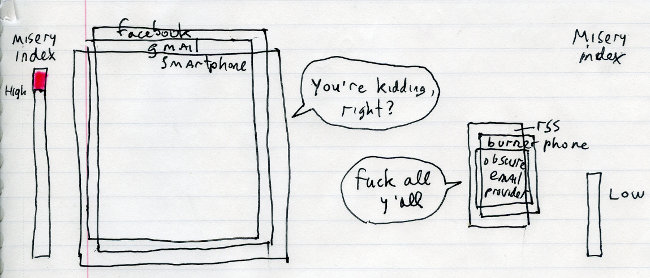"Haircut" is a classic Ring Lardner short story employing an unreliable narrator. A barber describes his swell chum who the reader quickly determines is a complete ingrate. Wired magazine (intentionally -- I think*) uses this device in its recent article Meet the CamperForce, Amazon's Nomadic Retiree Army. Written in a perky, upbeat style, it describes the grimmest of circumstances: a man works his way up the ladder at McDonald’s, retires at 60, loses his savings to shaky investments, and spends his twilight years in a soul-deadening Amazon warehouse job.
And not just by himself: there is a small army of elderly camper nomads in the outbacks of Nevada, Tennessee, Texas, and other states (cheerfully called "workampers" in the article) who are being exploited by Jeff Bezos in the same manner. Their aging bodies aren't accustomed to 10 hour days schlepping consumer goods around the inside of a warehouse so Amazon begins their (seasonal) work cycle with "a period of half-days called 'work hardening,' meant to help newcomers adapt to the physical stress of the job."
Amazon makes arrangements with existing trailer courts to provide space for the "CamperForce," as Amazon calls these itinerants. In the off-season they camp elsewhere: on public land, in the desert... Wired describes the loving, friendly communities of seniors in rickety, leaky RVs, who have all found each other in their post-retirement estrangement from US consumer society (the term Hooverville is not used). As Naked Capitalism commenter Off the Street put it:
Divide and conquer springs to mind. Hard to resist the societal tides as one piece of jetsam. Given the low savings of most Americans, there is an oversupply of potential workamperserfs to depress wages through their remaining nasty, brutish and shortish lives. If there are silver linings, then those may be through human connections, less need for a wired or credit-driven world and more appreciation of what people once had. Who knew that the Mad Max movies were destined to become instruction manuals? What other movies are in the works now ;p
*The tone of Wired's article is difficult to pin down. The essay isn't original to the magazine; it's a teaser from an upcoming book from a major publishing house. Is the author naive, or passive aggressive? Consider this line: "Many of the freshly arrived CamperForce workers were curious and strangely excited to work alongside the robots that threatened to replace them." Is the author afraid to speak critically of Amazon's brutal labor practices? Is she being constrained to speak by her publisher? The "Haircut" style makes the article less palatable than if she simply took a stand.


